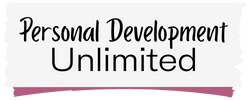Are you ready to take your career to the next level? Discover key strategies for professional growth and unlock your true potential.
Factual data: Unlocking your potential and achieving professional growth requires dedication, continuous learning, and a growth mindset.
Key Takeaways:
- Set clear goals: Define your professional goals and create a roadmap for your growth.
- Embrace lifelong learning: Seek out opportunities to acquire new knowledge and skills through courses, workshops, and conferences.
- Seek feedback: Actively seek feedback from mentors, supervisors, and peers to identify areas for improvement.
- Network strategically: Attend industry events, join professional organizations, and engage with peers and thought leaders to gain new opportunities and insights.
- Embrace challenges: Step out of your comfort zone and take on projects that stretch your capabilities to foster growth and resilience.
Remember, professional growth is a continuous journey, and by implementing these strategies, you can unlock your true potential and create a successful and fulfilling professional path.
Set Clear Goals for Professional Growth
Clarify your aspirations and create a roadmap for your professional growth by setting clear and achievable goals. Goal setting is an essential component of personal and career development, as it provides direction and motivation to propel you forward.
Table 1: Examples of Professional Growth Goals
| Goal | Action Steps |
|---|---|
| Obtain a leadership position | 1. Acquire relevant management skills through training 2. Seek out mentorship from experienced leaders 3. Take on leadership roles in projects or committees |
| Enhance technical expertise | 1. Enroll in specialized courses or certifications 2. Attend industry conferences and workshops 3. Collaborate with colleagues on challenging projects |
| Improve communication skills | 1. Take public speaking classes or join a Toastmasters club 2. Practice active listening and seeking feedback 3. Engage in cross-functional projects to enhance collaboration |
Quote: “Setting goals is the first step in turning the invisible into the visible.” – Tony Robbins
When setting your goals, ensure they are specific, measurable, attainable, relevant, and time-bound (SMART goals). This framework helps you formulate goals that are realistic and provide a clear path for progress. Break down your larger goals into smaller milestones or actionable steps to make them more manageable and track your progress along the way.
By setting clear goals, you create a vision for your professional growth and increase your likelihood of achieving success. Remember to regularly review and revise your goals as you navigate your career journey, adapting to new opportunities and challenges that arise. With a clear direction in mind, you can unlock your potential and pave the way for continuous growth.
Embrace Lifelong Learning for Continuous Growth
Expand your knowledge and stay ahead in your field by actively seeking opportunities for continuous learning and skill enhancement. In today’s rapidly evolving professional landscape, staying up-to-date with the latest industry trends and acquiring new skills is crucial for your career development and professional growth. Lifelong learning is not only a means to expand your knowledge but also a way to remain competitive and adaptable in an ever-changing job market.
One of the most effective ways to embrace lifelong learning is by actively seeking out educational opportunities. Attend workshops, seminars, and conferences relevant to your field to gain insights into emerging trends and best practices. Consider enrolling in online courses or pursuing certifications that align with your professional goals. These learning experiences can sharpen your skills, provide you with new perspectives, and open doors to exciting career opportunities.
| Benefits of Lifelong Learning | How to Embrace Lifelong Learning |
|---|---|
| 1. Stay updated with industry trends | – Attend workshops and seminars |
| 2. Acquire new skills and knowledge | – Enroll in online courses |
| 3. Enhance professional credibility | – Pursue certifications |
| 4. Boost career opportunities | – Engage in self-directed learning |
“Success is not just about learning from past experiences but also about being proactive and continuously acquiring new knowledge and skills.”
In addition to formal educational opportunities, embrace self-directed learning. Take advantage of online resources, industry publications, and thought leader blogs to broaden your knowledge and gain different perspectives. Engage in discussions and knowledge-sharing forums to stay connected with professionals in your field. Remember that learning is not confined to a classroom; it can happen anywhere and anytime.
Continuous learning is the key to unlocking your full potential and setting yourself apart in your career.
By embracing lifelong learning, you demonstrate a growth mindset and a commitment to personal and professional growth. As you expand your knowledge and acquire new skills, you become a more valuable asset to your organization and position yourself for career advancement. Don’t miss out on the opportunities that continuous learning can bring. Start investing in your professional development today.

Feedback is a valuable tool for personal growth and professional development. Discover how to actively seek feedback and leverage it to enhance your skills. By soliciting feedback from mentors, supervisors, and peers, you gain valuable insights and perspectives that can help you identify areas for improvement and refine your approach.
“Feedback is the breakfast of champions.”
When seeking feedback, it is important to approach it with an open mind and a growth mindset. Be receptive to constructive criticism and use it as an opportunity to learn and grow. Actively seek feedback through regular check-ins with your mentors or supervisors, or by requesting input on specific projects or tasks. Remember, feedback is not a reflection of your worth as a professional. It is a means to help you develop and reach your full potential.

The Power of Constructive Feedback
Constructive feedback provides valuable insights into your strengths and areas for improvement. It helps you understand how others perceive your work and enables you to make informed decisions about your professional growth. Embrace feedback as an opportunity to enhance your skills, refine your goals, and foster continuous improvement.
| Benefits | Explanation |
|---|---|
| Identify blind spots | Feedback can highlight areas where you may have overlooked your own shortcomings or potential for improvement. |
| Accelerate growth | Insights from feedback can guide you in developing specific skills or competencies, propelling your professional growth. |
| Strengthen relationships | By actively seeking feedback, you demonstrate your commitment to growth and build trust and rapport with others. |
| Expand perspectives | Feedback from diverse sources broadens your perspective and helps you develop a well-rounded skill set. |
Remember, feedback is a gift. Embrace it, learn from it, and use it to unlock your full potential and achieve professional growth.
Strategic Networking for Professional Advancement
Expand your opportunities and gain valuable insights by strategically networking with industry professionals and thought leaders. Networking is an essential tool for career advancement and personal growth. By building meaningful connections and fostering relationships within your industry, you can open doors to new opportunities, expand your knowledge base, and gain valuable support and guidance.
Here are some strategies to help you network strategically:
- Attend industry events: Participating in conferences, seminars, and trade shows allows you to meet like-minded professionals and experts in your field. Take the opportunity to engage in conversations, exchange ideas, and make meaningful connections.
- Join professional organizations: Becoming a member of industry-specific associations and organizations provides access to a network of professionals who share similar interests and goals. Engage with these communities, attend their events, and actively contribute to discussions.
- Utilize online platforms: Social media networks, such as LinkedIn, offer a platform for professionals to connect, share insights, and build relationships. Create a strong profile, connect with industry influencers, and be proactive in engaging with relevant content.
Remember, networking is not just about collecting business cards or accumulating a large number of connections. It’s about building genuine relationships based on trust and mutual support. Take the time to nurture these relationships by offering assistance, sharing opportunities, and maintaining regular communication.
By strategically networking, you can expand your knowledge, gain fresh perspectives, and create a strong support system that will propel your professional growth and career advancement.
| Benefits of Strategic Networking | Key Takeaways |
|---|---|
| Access to industry insights and trends | Expand your knowledge base and stay ahead of the curve. |
| Opportunities for collaboration and partnership | Forge partnerships, collaborate on projects, and unlock new possibilities. |
| Mentorship and guidance | Learn from experienced professionals who can guide you in your career journey. |
| Job and career advancement opportunities | Network with potential employers, recruiters, and industry influencers to discover new career opportunities. |
| Increased self-confidence and visibility | Build your personal brand, gain recognition, and boost your confidence by sharing your expertise and achievements. |

“Strategic networking has been a game-changer for me. By attending industry events and actively engaging with professionals in my field, I’ve not only expanded my knowledge but also established valuable connections that have opened doors to new opportunities. Networking has enabled me to stay informed, collaborate with like-minded individuals, and accelerate my professional growth.” – Jane Doe, Marketing Manager
By implementing these strategies and leveraging the power of strategic networking, you can position yourself for success in your professional journey. Remember, building meaningful connections and nurturing relationships takes time and effort, but the rewards are well worth it. Embrace the opportunities that networking provides and watch your career soar.
Embrace Challenges for Growth and Resilience
Embrace challenges as opportunities for growth and resilience, and discover how pushing beyond your comfort zone can propel your professional development. As you navigate your career path, it’s essential to confront challenges head-on, as they offer valuable opportunities for personal and professional growth. By stepping outside of your comfort zone and tackling difficult tasks, you can stretch your capabilities, develop new skills, and cultivate resilience.
Challenges help you expand your knowledge and abilities, enabling you to adapt to rapidly changing work environments. They push you to think creatively, problem-solve, and discover innovative solutions. Whether it’s taking on a complex project, leading a team, or learning a new technology, each challenge presents a chance to learn and grow.
One effective way to approach challenges is to break them down into manageable tasks. By setting smaller goals and milestones, you can build momentum and stay motivated throughout the process. Additionally, seeking support from mentors or colleagues who have faced similar challenges can provide valuable insights and guidance.
Embrace Challenges with Confidence and Resilience
Remember, embracing challenges requires a growth mindset. View setbacks as opportunities to learn and evolve, rather than failures. Cultivating resilience is crucial in overcoming obstacles and bouncing back stronger. Take time to reflect on each challenge, identify lessons learned, and apply them to future endeavors.
| Benefits of Embracing Challenges |
|---|
| 1. Personal growth and development |
| 2. Enhanced problem-solving skills |
| 3. Increased self-confidence and resilience |
| 4. Expanded knowledge and expertise |
| 5. Opportunities for career advancement |
Embracing challenges may not always be easy, but the rewards are worth it. It’s through these experiences that you can discover your true potential and achieve professional growth beyond your expectations. So, seize every opportunity, embrace challenges with confidence, and watch as your career skyrockets to new heights.

Cultivate a strong personal brand to differentiate yourself professionally and create new opportunities for career advancement. Your personal brand is more than just a logo or a tagline; it is a representation of your unique qualities, expertise, and values. By intentionally shaping your personal brand, you can establish yourself as a trusted authority in your field and attract the right opportunities and connections.
Here are some key strategies to help you build a compelling personal brand:
- Define your brand identity: Start by identifying your strengths, passions, and values. What sets you apart from others in your industry? Use this self-reflection to craft a clear and authentic brand identity that resonates with your target audience.
- Create valuable content: Share your knowledge and insights by creating high-quality content that adds value to your audience. This can include blog posts, articles, videos, or podcasts. Consistency and quality are key in establishing yourself as a thought leader.
- Showcase your accomplishments: Highlight your achievements and successes in a way that demonstrates your expertise. This can be through case studies, testimonials from satisfied clients, or showcasing awards and certifications.
- Engage with your audience: Actively participate in industry events, conferences, and online communities to connect with like-minded professionals. Share your expertise, answer questions, and build relationships with others in your field.
- Utilize social media: Leverage platforms such as LinkedIn, Twitter, and Instagram to amplify your brand message and connect with a wider audience. Be strategic in your social media presence, consistently sharing valuable content and engaging with your followers.
Remember, building a personal brand is an ongoing process. Continuously refine and evolve your brand as you grow in your career. By investing time and effort into building a strong and authentic personal brand, you can position yourself for career success and unlock new opportunities for professional growth.

| Elements | Description |
|---|---|
| Brand Identity | Define your unique qualities, passions, and values that set you apart from others. |
| Content Creation | Produce valuable and engaging content to showcase your expertise and provide value to your audience. |
| Achievement Showcase | Highlight your accomplishments, awards, and certifications to establish credibility. |
| Engagement | Participate in industry events, conferences, and online communities to connect with professionals in your field. |
| Social Media Presence | Utilize social media platforms to amplify your brand message and engage with a wider audience. |
Mentors and Role Models: Guiding Your Growth
Surround yourself with mentors and role models who can provide guidance, inspiration, and valuable advice to steer your professional growth. These individuals have already walked the path you aspire to, and their experiences and insights can be invaluable as you navigate your own journey. A mentor can offer personalized guidance, helping you set goals, develop new skills, and overcome challenges along the way. They can provide a fresh perspective, challenge your assumptions, and push you out of your comfort zone, enabling you to reach new heights.
When choosing a mentor, look for someone who aligns with your values, possesses the expertise you admire, and is willing to invest their time and energy in your development. Reach out to industry leaders, professors, or colleagues who have excelled in your field and ask if they would be willing to mentor you. Remember, the right mentor can inspire you, push you to achieve more, and serve as a guiding light on your professional path.
In addition to mentors, role models can also play a crucial role in shaping your professional growth. These are individuals who have achieved success in areas that resonate with you and serve as inspiration for what is possible. They can be thought leaders, entrepreneurs, or even fictional characters who embody the qualities and values you aspire to. Look for opportunities to learn from their journeys, whether it’s through their books, interviews, or speeches. By studying their paths, you can gain valuable insights into the strategies and mindset that contributed to their success.
Remember, mentors and role models are not there to dictate your every move, but rather to provide guidance and support. It’s up to you to take their advice, adapt it to your circumstances, and forge your own unique path. With their wisdom, encouragement, and belief in your potential, you can navigate the challenges, seize opportunities, and achieve your professional goals.
Source Links
- https://medium.com/@saadazhar7/unlocking-your-full-potential-7-proven-strategies-for-personal-growth-cc1966976c4b
- https://medium.com/@tanishjain5555/unlock-your-professional-growth-potential-with-these-strategies-cc03f3d1cf2e
- https://www.betterup.com/blog/full-potential
Personal Development Unlimited is your go-to place to be You, Without Limits. We bring together personal development and self-improvement articles, books, courses and videos in one place. Find your self-growth opportunities easily.
Comments
0 comments



